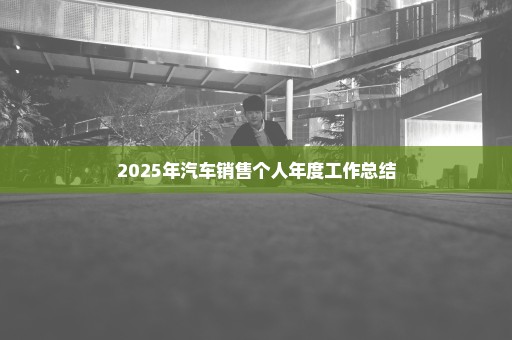MPA.MPP.MPM区别
硕士是一个介於学士及博士之间的研究生学位(Post-Graduate),拥有硕士学位者通常象徵具有基础的独立的思考能力。
硕士课程主分为两种,分别是修课式和研究式。 修课式的硕士课程主要有理学硕士(Master of Science,英文短写为MSc),教育硕士(Master of Education,英文短写为MEd),工程硕士(Master of Engineering,英文短写为MEng)和文学硕士(Master of Arts, 英文短写为MA)。另有工商管理硕士(Master of Business and Administration, 英文短写为MBA)。而研究式的硕士课程有哲学硕士(Master of Philosophy,英文短写为MPhil)。
修课式硕士一般只需要完成特定的课程,并且达到学院所要求的成绩便可以毕业,而大部份哲学硕士课程则除了要求在修学课程上取得优异成绩和担任教学助理(Teaching Assistant)外,还要进行全职学术研究,并且撰写硕士论文才能毕业。完成修课式硕士课程所需的时间为一年到两年不等,入学资格一般为学士毕业便可。另一方面,由於哲学硕士需要进行全职研究和担任教学助理,所以入学资格要求会高很多,通常需要申请者拥有学士学位,并且取得二级荣誉一等,甚至一级荣誉或以上的成绩。完成哲学硕士课程所需的时间一般为两年到两年半,有些时候也会因为在研究上有困难而延长修业时间,但通常不会超过四年。
工商管理硕士除了需要学士资格外,通常还会要求若干年的工作经验。
学位
副学士学位 (美)
AA, AAS, ABA, ABS, AOS, AS, ASN
准学士学位 (英)
FdA, FdEd, FdEng, FdMus, FdBus, FdSc, FdTech
学士
B.A. , BAccty, BAdm, BAgrEc, BArch, BBA, BBus, BCom, BComp, BCS, BCL, STB, BD, BDent, B.Ed., BEc, BE, BSBME, BFA, BHE, BHK, BJ, BLibStud, BMath, BMus, BSN, BPE, BPharm, BS, BSA, BSocSci, BTech, LLA, LLB, MB BS, BPhil, BCL
硕士
MA, MS, MSc, MSt, MALD, MApol, MPhil, MRes, MFA, MTh, MTS, MDiv, MEd, MBA, MBT, MComm, MPA, MPD, MPS, MSN, MProfStuds, MJ, MSW, MPAff, MLIS, MLitt, MPH, MPM, MPP, MPT, MRE, MTheol, LLM, MEng, MSci, MBio, MChem, MPhys, MMath, MMus, MESci, MGeol, MTCM, MSSc, MA, MLA, MArch
副博士学位:
Lic Arts, LDS, JCL, STL, SSL, LSS
特殊专长培训证书
EdS, SSP, CAS
工程师学位
AE, BE, BME, CE, CE, ChE, EE, CpE, ECS, EnvE, MSE, ME, NavE, NuclE, Ocean E, SysE, Eng
第一专业学位
AuD, DC, DCM, DDS, DMD, JD, MD, ND, OD, DO, PharmD, DP, PodD, DPM, MDiv, MHL, DVM
博士
PhD, DPhil, EdD, EngD, DBA, DD, DMin, JCD, DCL, SSD, DSc, DLitt, DA, DMH, MD, DMA, DMus, ThD, DrPH, DPT, PsyD, DSW, LLD, LHD, JSD, SJD, JuDr, STD
看这挺冷清的,我在nus读大一,工程学院,自然不算学长,不过个人不建议来nus读研,在nus读本科回国读研究生听起来更合理
Applicants must be proficient in the English language. As such, applicants whose native tongue or medium of undergraduate instruction is not English must complete the TOEFL, IELTS, or pass the Diagnostic English Test (DET, administered by the NUS Centre for English Language Communication).
Other admission requirements may vary depending on the nature of the graduate programmes. While the paragraphs below set out the general requirements, more detailed information is available at the respective Faculty’s website.
Research-based Programmes
Candidates must demonstrate readiness for graduate study through some specific standard of achievement in a common entry examination (eg: the subject GRE, GMAT), or an admissions test, or an interview.
Admission to a research Master’s programme normally requires a good Honours degree or equivalent. Departments may also admit students with a good Bachelor’s degree with relevant research or working experience on a case-by-case basis, subject to approval by the Board of Graduate Studies (BGS).
Admission into a Ph.D. programme requires a good Master’s degree in a relevant discipline, or at least a Second Class Upper Honours degree or equivalent in a relevant discipline.
There is no limit to transfer of credit for modules that have not been used towards another degree at NUS or elsewhere. For modules that have been credited towards another degree at NUS or elsewhere, up to 50% of the MCs required in the coursework component of the NUS graduate research programme into which the candidate seeks admission may be exempted.
Only modules at level-5000 and above, relevant to the degree programme to which the candidate seeks admission, and read less than 5 years before the date of admission may be considered for credit transfer/exemption.
Coursework-based Programmes
Admission to a coursework-based graduate programme requires at least a Bachelor’s degree, or equivalent, in the subject or related discipline. In addition, programmes may require candidates to demonstrate readiness for graduate study through a specific standard of achievement in:
a common placement examination (eg: the subject GRE, GMAT); or
a programme-administered placement test in the relevant field (which may also consist of a structured interview to test the candidate’s understanding of the field); or
completion of 40 MCs of preparatory modules.
Exceptionally, candidates with other qualifications and experience may be considered on a case-by-case basis, subject to approval by the BGS.
With the approval of the Senate, programmes may specify relevant work experience as an additional admission requirement.
Generally, only modules that have not been used towards another degree at NUS or elsewhere may be considered for credit transfer (NUS modules) / exemption (Non-NUS modules). Such modules must be at level-5000 and above, relevant to the degree programme to which the candidate seeks admission, and read less than 5 years before the date of admission.
这是邮政地址:Lee Kuan Yew School of Public Policy
National University of Singapore
469C Bukit Timah Road
Singapore 259772
Telephone: (65) 6516 6134
Fax: (65) 6778 1020
这是邮箱:
General Enquiries and Feedback: lkyspp@nus.edu.sg
Executive Education: lkysppep@nus.edu.sg
Master in Public Policy: lkysppmpp@nus.edu.sg
Master in Public Administration: lkysppmpa@nus.edu.sg
Master in Public Management: lkysppmpm@nus.edu.sg
Doctor of Philosophy: lkysppphd@nus.edu.sg
Public Lectures: lkyspppl@nus.edu.sg
Human Resources: lkysppjoinus@nus.edu.sg
Alumni Matters: spplink@nus.edu.sg
Asia Competitiveness Institute: aci@nus.edu.sg
Centre on Asia and Globalisation: cag@nus.edu.sg
Asian Journal of Public Affairs: ajpa@nus.edu.sg
主页:http://www.lkyspp.nus.edu.sg/home.aspx
内设
Programme Introduction
Master In Public Policy (MPP)
The two-year MPP programme is specially designed for pre- and early-career professionals with an interest in public affairs. The programme allows students to acquire a sound understanding of the political, social, and economic processes that shape public policy as well as provide them with a rigorous analytical and managerial toolkit. On graduation, students are ready to pursue a broad spectrum of rewarding careers in the public, private and not-for-profit sectors.
Master in Public Administration (MPA)
The MPA is a management-centric one-year programme for mid-career professionals who wish to enhance their management effectiveness and fulfil their career potential. Drawing on the strengths of a traditional public policy education, the MPA prepares students for the challenges involved in taking on a managerial or leadership position in a variety of public, private and not-for-profit organisations.
Master in Public Management (MPM)
The MPM is an exclusive one-year programme for senior policy-makers with a proven track record in leadership in public service. Developed to intellectually reinvigorate students while equipping them with cutting-edge knowledge and best practices in public policy, the programme also offers students the unique opportunity of observing and participating in the operations of Singapore Government agencies through a six week attachment. In addition, MPM students are introduced to American politics, society and culture by spending the second semester of their studies at either Harvard University’s Kennedy School of Government or Columbia University’s School of International and Public Affairs.
Doctor of Philosophy (PhD)
The PhD programme seeks to strengthen the capability and effectiveness of public policy research. It will equip students with the necessary theoretical frameworks, research methods and tools to conduct scientific inquiry to address contemporary public policy issues. The programme will bolster research capabilities in public policy that will foster a deeper understanding of the complex issues facing public, private and not-for-profit sectors in Asia.
Concurrent and Double Degrees
The NUS Bachelor of Business Administration with Honours, BBA(Hons), and Master in Public Policy (MPP) concurrent degree programme aims to prepare the next generation of policy leaders to apply business principles to social and environmental issues, as well as to address corporate social responsibility and business ethics concerns.
The Master in Business Administration and Master in Public Policy (MBA-MPP) and the Master in Business Administration and Master in Public Administration (MBA-MPA) double degree programmes aim to provide students of business and public policy broad exposure to the issues and challenges that leaders of business and public institutions face.
The concurrent degree programme in Law and Public Policy (LLB-MPP) combines the strengths of the LKYSPPand the Faculty of Law, offering law students, particularly those interested in a career in public service, a unique opportunity to understand the legal, policy, and practical dimensions of governance and national, regional, and international policy-making.
The Master of Laws and Master in Public Policy (LLM-MPP) and Master of Laws and Master in Public Administration (LLM-MPA) double degree programmes aim to provide students of law and public policy broad exposure to the issues and challenges that lawyers and leaders of public institutions face.
1、tot?美?[tɑt]?英?[t?t]?复数:tots
(1)、n.幼儿;小杯烈酒
(2)、v.加起来总共?
(3)、网络小孩;合计(Total);道达尔
2、baby?美?['be?bi]?英?['be?bi]?复数:babies?现在分词:babying?过去分词:babied
(1)、n.婴儿;动物幼崽;(家庭或团体中)最年幼的成员;幼稚的人
(2)、v.婴儿般对待;百般呵护
(3)、adj.(蔬菜)小型的
(4)、网络宝贝;宝宝;亲爱的
3、infant?美?['?nf?nt]?英?['?nf?nt]?复数:infants
(1)、n.婴儿;幼儿;四岁到七岁之间的学童
(2)、adj.供婴幼儿用的;初期的;初创期的
(3)、网络婴儿的;婴童系列;未成年人?复数:toddlers
4、toddler?美?['tɑdl?r]?英?['t?dl?(r)]
(1)、n.学步的儿童;刚学会走路的孩子
(2)、网络:幼儿;初学走路的孩子;学步的小孩
扩展资料:
1、tot:
(1)、How?much?did?the?bill?tot?upto?
账单的总数是多少?
(2)、No?one?who?could?see?and?describe?the?threadthatranbetween?how?I?was?asa?tot?and?what?I?am?today.
没人知道,也没有人会了解我是怎么在孩子般的无助中走到今天的。
2、baby:
(1)、Itdidn't?look?like?a?baby,?in?fact?there?seemed?to?be?morethan?onesetof?eyesblinking?back?at?him.
看起来不像是个婴儿,实际上,不止有一双眼睛在对着他眨动。
(2)、In?this?regard,?and?withthisin?mind,?there?is?a?wide?variety?of?different?toys?thatideallyare?suited?for?the?bath?and?for?your?baby.
考虑过这一点,并且将其牢记于心,那么就有各种各样不同的适于你的孩子洗澡时间使用的玩具供你选择了。
3、infant:
(1)、This?paperdealswith?a?real-world?case,?provided?byan?international?infantformula?company?operatingin?Taiwan.

本研究针对国际婴儿奶粉台湾分公司所提供的一个实际例子来求解。
(2)、Gloria?gave?him?a?miniature?hoop?and?ball?when?he?was?an?infant,?and?heamused?himself?for?hours?each?day?with?the?toys.
凯莱送给他一个缩影箍和球的时候,他是一个婴儿,他笑自己好几个小时,每天与玩具。
4、toddler:
(1)、In?it?a?young?woman,?hair?bobbed?and?face?in?shadows,?stood?with?a?toddler.
照片上,一个年轻的女子留着短发,脸部有阴影,和一个小孩站在一起。
(2)There?Baumbich?found?a?photograph?of?a?chubby?toddler?opening?a?treasure?chest?--?out?of?which?flew?butterflies.
在那儿,她看到了一张照片,照片上一个胖乎乎的小孩正打开一个珠宝盒,从盒子中飞出了蝴蝶。
鹏仔微信 15129739599 鹏仔QQ344225443 鹏仔前端 pjxi.com 共享博客 sharedbk.com
图片声明:本站部分配图来自网络。本站只作为美观性配图使用,无任何非法侵犯第三方意图,一切解释权归图片著作权方,本站不承担任何责任。如有恶意碰瓷者,必当奉陪到底严惩不贷!
 百科狗
百科狗



